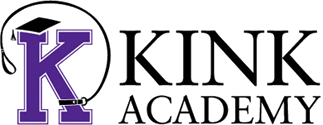
It’s pretty obvious just from a casual glance at daily headlines that the world needs more and better sex educators at pretty much every level, from puberty through old age. Questions of consent tie into that (highlighted by the #MeToo movement) as well as the strange ideas legislators seem to have about reproduction (an Idaho lawmaker suggested women swallow a tiny camera for a “remote” gynecological exam). Alongside this is the struggle to remember that sexuality can also be a part of pleasure, relationships, and self-care.
Do you feel the call to be a Sex Educator? With the wealth of misinformation out there at all levels of education, it can be difficult to find a reliable source of information to get started. Depending on your resources, you may have varying abilities in terms of money, travel, or time. We’d like to provide you with some options to help you get started, if this is your path.
Really Cheap. Like, FREE!
It’s no secret that a lot of sex educators share their valuable information free of charge (or, even more often, at some expense to themselves). We at Kink Academy do it as well – you can check out our Free Video section which includes academic lectures from CARAS as well as a range of talks from events like International Ms Leather. There are other places on the web that freely offer amazing resources.
Ducky Doolittle is one of our favorite and most prolific educators. She’s organizing a Sex Educator Skill Share (Kink Academy is a sponsor) which follows a model of being “a 10-week series of free webinars for established and future sexuality educators, writers, event producers, & entrepreneurs.” As of the writing of this blog they are still accepting proposals, and tuning in to the event itself starting in September will give both new and experienced sex educators valuable perspectives.
At Kink Academy we feel it’s important that sex education be inclusive of people with disabilities. We were glad to see The Disability and Sexuality Access Network do a “soft-launch” in July. This organization embraces the “Nothing About Us Without Us” creed, and is majority-led by persons with disabilities. Their aim is “to bring disability-specific issues to the fore of sexology, sexual health services, and sex-positive communities/conversations.” Towards that end they have compiled a truly amazing comprehensive list of sexuality resources that can benefit from their experiences.
Low and Accessibly Priced
While free education is valuable, sex educators also have the right to expect to be paid their work. Cameron Glover is an experienced sex educator who has compiled a great Becoming a Sexuality Professional Guidebook” which includes 30 page of “advice, exercises, and step-by-step instruction on how to get started in the field.” This can be a low-investment way to dip your toes into the idea of being a sex educator, and the Guidebook is downloadable so that you can take that step from the comfort of your own home.
For those who are more adventurous, Kink Academy contributor Reid Mihalko runs a Sex Geek Summer Camp in Portland, Oregon. It is five days and four nights of participants taught by experienced educators on things like “business and marketing approaches” to “build a business and career that will make you happy because it’s aligned with your values and abilities” all while “surrounded by trees you can hug, running water you can dip in, and trails you can hike!”
While you are responsible for your own transportation to the event, it combines a great curriculum with unbeatable networking and support opportunities. Best of all, it has several payment options for the all-inclusive campout, and therefore is much more accessible than any comparable workshop.
Four-Figure Certifications
When you get into the realm of “certifications” and academic courses, the cost of becoming a sex educator can jump significantly. At the same time this kind of investment can open doors to organizations that need this kind of reassurance about your knowledge and training.
Everyone Deserves Sex Ed offers a certification designed to let individuals “jump-start their sex education career, participate in professional development, or become a valuable resource to their community.” Over the course of two weekends in Los Angeles, the program provides ” key information about human sexuality, intimate health, consent, and communication skills” as well as how to answer “sex-related questions in a concise and nonjudgmental manner.”
At the even higher end of the academic spectrum, The Options for Sexual Health Sexual Health Educator Certification (SHEC) Program based in Vancouver, British Columbia, is designed primarily for teachers, counselors, and health professionals. It is a comprehensive course, consisting of a series of five three-day modules plus sixty hours of practicum.
The course fee of $3600 doesn’t include the textbooks, which makes this the most expensive of the options we’re talking about here. But you get a lot for your money: “a specialized skill set for teaching comprehensive sexual health education to a variety of audiences: preschool, elementary, secondary, and post-secondary students; professionals; adults; and parents.”
Knowledge is a Powerful Aphrodisiac
Do sex educators actually have better sex themselves? That’s something that each individual will have to answer for themselves. As the EDSE website puts it, everyone who tries to learn how to teach others also gains”…new insight into their own sexuality – a fun side effect of sex education training.”
Better orgasms? Who knows?
Better conversations about orgasms? Almost definitely.
